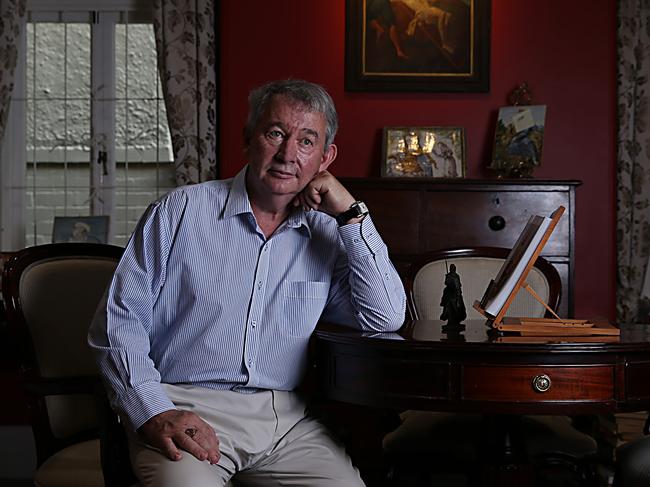The Voice: Contentious words, ‘executive government’ explained
There’s two words linked to the Voice referendum that have sparked furious debate. Here’s what they actually mean.
National
Don't miss out on the headlines from National. Followed categories will be added to My News.
Two innocuous words are sparking huge debate around the Voice referendum.
Tens of thousands of comments on the Voice are being posted online every day, with the term ‘Executive Government’ attracting the most confusion and questions.
Referendum wording that states the “Voice may make representations to the Parliament and the Executive Government of the Commonwealth on matters relating to Aboriginal and Torres Strait Islander peoples”, is proving to be the point of contention.
“People want to know what does access to Executive Government actually look like,” Ross Candido, vice president of Meltwater for Australia, New Zealand and Southeast Asia, which monitors online conversations, said.
GOT A QUESTION: If you’re confused about the Voice, submit your question for us to answer
He confirmed that is where the “area of debate” is concentrated.
“It’s about the nuts and bolts of the Voice,” he said.

Online the Yes campaign’s demographics are split 55 per cent male to 45 per cent female, while the No’s vote is more male-dominated (65 per cent male to 35 per cent female).
The Executive Government is made up of public service and ministers who oversee government departments. It is where laws and programs are formed.
Supporters say it is essential the Voice has access to this branch of government to improve outcomes for Indigenous people.
But critics are concerned the width and breadth of the federal government and its agencies would be obliged to consult the Voice, slowing down or interrupting the process of government.
They also fear the wording creates the chance for activist judges to make rulings about the nature of the Voice.

The inclusion of ‘Executive Government’ has caused the public — and the No camp of the campaign — to question exactly what issues the Voice will able to give an opinion on.
Professor Greg Craven, part of the constitutional expert group that advised the government about the wording, was quoted as saying it could lead to the Voice being able to comment on everything from “submarines to parking tickets”.
However, despite his concerns and the wording being included, Prof Craven has said he still fully supports the Voice.
Prime Minister Anthony Albanese argues the third clause of the amendment gives parliament the power to determine how the Indigenous Voice operates. He has rejected claims the Voice could have access to the Reserve Bank of Australia, for example. In an interview he said even he, as the PM, does not have access to the RBA.

However, others argue the second clause is problematic because parliament cannot change the Voice once it is added to the constitution.
They fear issues such as tax policy could be challenged as it affects Indigenous people in the same way as it affects all citizens.
Other members from the constitutional expert group have said the inclusion of ‘Executive Government’ is not as far reaching as some fear and should not be a concern for voters.
One, Anne Twomey, pointed to previous High Court rulings that found the term ‘Executive Government’ extended to ministers and government departments but not statutory bodies with their own legal personality.
Mr Candido said his analysis had revealed the younger demographic was more active on Reddit where people are asking a lot of questions, while those on other platforms are mostly making statements of support for or against.
Either way, public posts about how the Voice will actually work, and the exact meaning of ‘Executive Government’ continue to have the most engagement.





